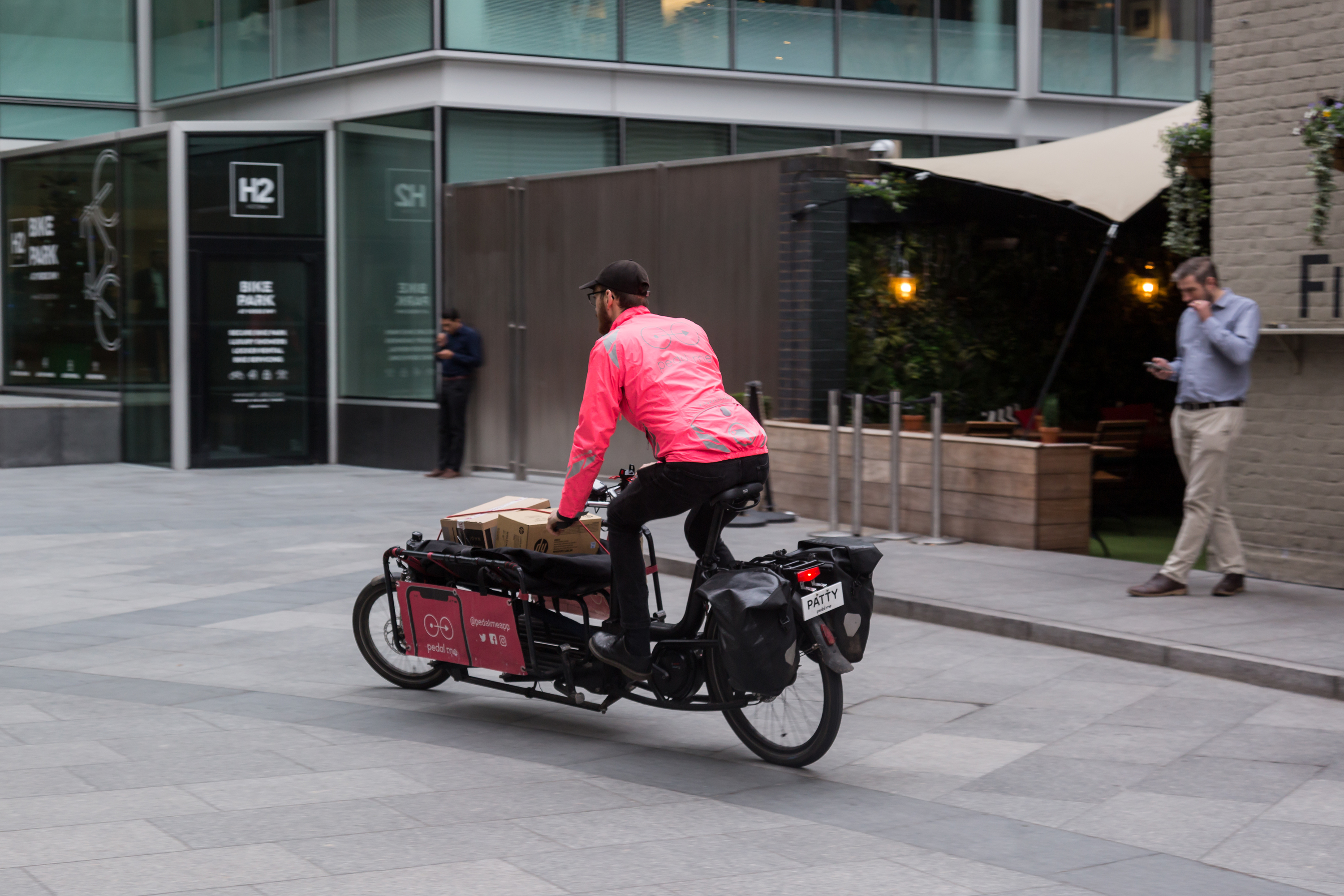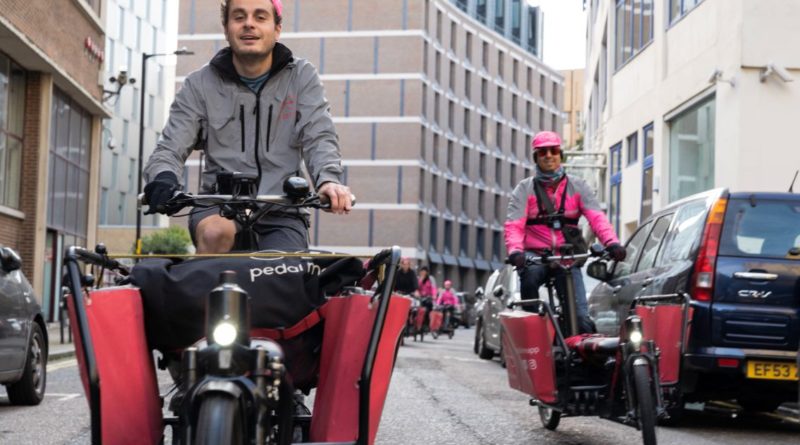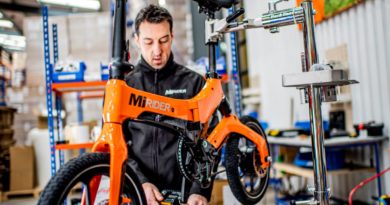Pedal Me cargo bike data proves urban efficiency and cost saving of smaller vehicles
An astonishing summary of data from cycle logistics business Pedal Me has placed the cargo bike ahead of the van delivery on every metric.
Operating in London and expanding rapidly on the back of a second successful funding round, the cargo bike delivery network has shunted its model from carrying people to carrying largely cargo for businesses. The reason for this? The analysis, produced by Pedal Me Data Scientist Nicolas Collignon, does the talking when comparing the firm’s bike network against equivalent van deliveries.
The blog post starts with a simple like-for-like speed comparison, citing Transport for London’s data for vehicle speeds in central and inner London, which measure at 11.4km/h and 18.7km/h on average weekdays from 7am to 7pm. Pedal Me righty points out that, with traffic swelling well beyond pre-pandemic levels as transport habits fluctuate around lowered public transport use, the speeds cited may be generous.
Pulling the data from 37 of its cargo bikes’ GPS units, Pedal Me was able during September to generate an average pace of 15km/h in Central London and 16.4km/h in inner London.
Pedal Me says that its speeds only look likely to improve too, giving a nod to the improving network of cycling infrastructure that allows its bikes to skip past traffic, which often sits stationary thanks to the volumes now using the road network.
Additional time is bought for Pedal Me thanks to the non-requirement of finding a parking space to make deliveries, which the firm illustrates takes between 9 and 15 minutes for delivery vans in busy urban areas. Furthermore, parking fines are common for the logistics giants; some $2.8 million was owed in the first quarter alone by FedEx and UPS, according to the post.

A reduction in trip length is the next major perk cited by Pedal Me, who utilising Open Street Mapping demonstrated that bike based trips measured around 6% shorter than the equivalent task for a car. Analysing 2,000 of its jobs, the 11,800km of total distance equated to a distance of 620km saved. For journeys shy of 5km, journeys came in at 8% shorter. 25% of journeys were 10% or more shorter.
Distance length was put to the test for a full schedule’s work comparing a van to a cargo bike. For a nine package delivery, made up of larger items, it was found that a single van would cover 54km. Consolidating the delivery to three cargo bikes before it hits the inner city traffic, the total distance covered by the bikes came in at 48km, 6km less, thanks to the alternative route choices and agility of the cargo fleet.
For smaller items the same efficiency was logged. The job consisted of 114 package drops, for which each cargo bike could carry 30.
“While a van may carry all packages, we compare the total distances for three vans, assuming that 50 deliveries require approximately 8 hours of work. We find that the total distance for three vans is 65km. For 5 cargo bikes, the total distance was of 62km, again leading to more efficient logistics overall,” concludes the data analysis.
To read Pedal Me’s snapshot in full (it’s a big read) see here. For further reading on the subject of cargo bike logistics, head here.



